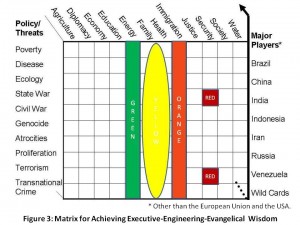
The Real Reason for More Troops in Afghanistan
Michael Gaddy LouRockwell.com October 20, 2009Anyone with a rudimentary knowledge of our quest for empire over the past six decades realizes that Obama’s contemplation of whether to send additional troops to Afghanistan is simply those who control him providing Obama with the opportunity to look “presidential.” The decision to send additional troops was reached prior to the situational comedy of General McChrystal’s leaked “confidential report” to the Washington Post and Obama’s National Security Advisor’s public admonishment of McChrystal’s failure to follow the chain of command. All of this is nothing but a well-rehearsed, though poorly camouflaged hoax. Additional troops will be sent to Afghanistan within a very short period of time and Obama really has no say in the matter. The question is: why?
Continue reading “Journal: How NOT to Decide on Afghanistan”









